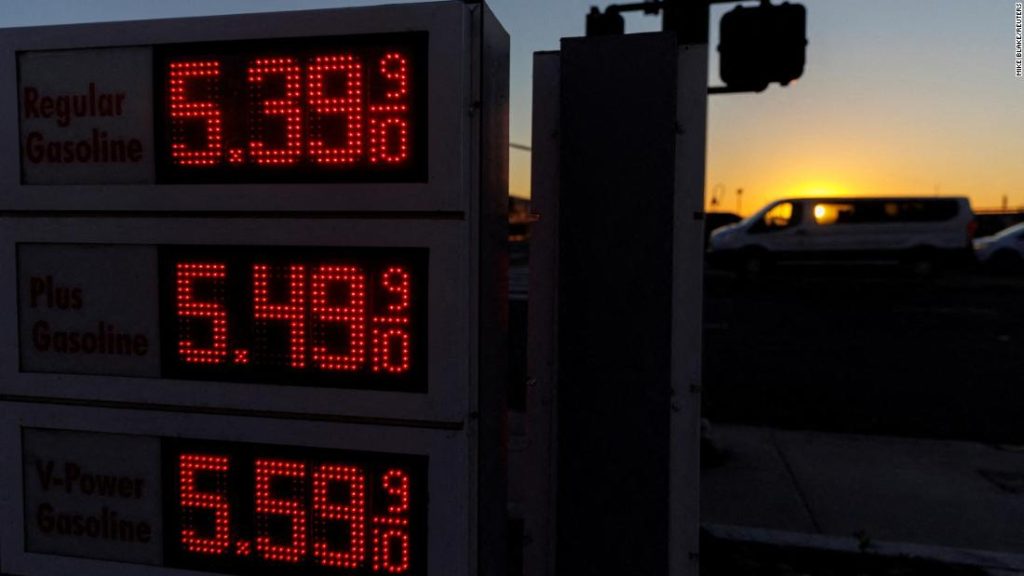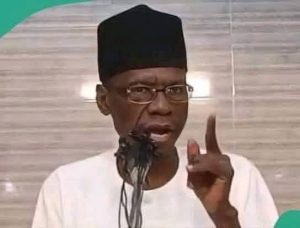How the Biden admin is quietly eyeing Saudi Arabia and UAE relations to offset surging oil prices

The two main targets of the effort, Saudi Arabia and the United Arab Emirates, have had frosty relations with the US since Biden took office. Both countries are members of OPEC, the powerful bloc of 13 countries that together control 40% of global oil production. And both were on friendlier terms with the Trump administration. But over the past month, US officials say progress has been made and there may be evidence the diplomatic work is starting to pay off. On Wednesday, the UAE’s ambassador to Washington, Yousef Al Otaiba, Inside the White House, the comments ricocheted around the West Wing, and fed a sense that things were moving in the right direction, officials said. Biden officials OPEC+ members chose to stick to the agreed upon supply schedule when they met on March 2, a decision that came as no surprise to US officials at the time. Yet the economic fallout since then has led to a tangible supply disruption. As global energy companies have shunned Russia, even though its oil production has held up, much of those Russian barrels have failed to make it to market. It’s a critical though subtle distinction that OPEC members could point to in any future decision to raise production targets.Earlier this week, the US moved on its own to ban Russian oil imports into the US, a small slice of Russian overall exports, but another action that brought a chill to the marketplace and helped drive prices higher. It’s a painful reality that has brought into sharp focus months of quiet, but urgent outreach by US officials to secure increased energy production from industry and countries across the globe. Led by Hochstein, the State Department’s energy envoy, and McGurk, it included outreach across the Middle East, Asia and North Africa, as well as intensive discussions with US producers. As the price increases have continued to bite, the quiet nature of those efforts has given way to a direct public message. “We want more oil supply in the world,” Daleep Singh, Biden’s deputy national security advisor for international economics and one of the officials running point on U.S. response, said on CNN’s New Day on March 9. “We want it from producers with spare capacity.” Singh explicitly noted that Saudi is one of those producers.UAE stress test The UAE is another of those producers with spare oil capacity. But it’s also a traditional Gulf ally that has had an increasingly strained relationship with the US since Biden took office. The country felt particularly slighted by the US when there was not an overwhelming amount of support of them after the deadly drone attack in the UAE in January carried out by Iranian-backed Houthis, a US official explained.They also are concerned about a possible revived Iran nuclear deal being too weak, and thus enabling the IRGC. When Biden deployed his senior aides to Saudi Arabia, McGurk included a stop in the UAE, where there was a particular focus on Yemen that included an effort to stress U.S. support for the country’s territorial defense against Iranian-enabled missile and UAV attacks, officials said. As he did with the Saudis, McGurk discussed “the need to combine pressure on the Houthis in Yemen with a concerted UN-led effort to end the war there,” the White House said in a readout of the trip. Signs of tension have been clear in the wake of Russia’s invasion. The UAE abstained from a US-led resolution to condemn Russia’s invasion of Ukraine at the UN Security Council, largely due to the frustration over Yemen, officials said. Otaiba then laid out the unsettled dynamics in public remarks noting the relationship “has strong days where the relationship is very healthy and days where the relationship is under question.””Today, we’re going through a stress test but I am confident that we will get out of it and get to a better place,” he added.Yet it was Otaiba’s comments on Wednesday that first sent markets plummeting and proving some possible evidence that the Biden administration’s diplomatic efforts were starting to pay off. But even with the UAE signaling they would support increased production, the country has also made it clear that they will have to abide by the OPEC rules, which requires all countries to support any move to increase supply.The UAE’s energy minister, just hours after Otaiba’s comments, appeared to walk it back– but he never outright contradicted what Otaiba had said.Instead, he made clear the UAE support for operating within OPEC guidelines. “The UAE is committed to the Opec+ agreement and its existing monthly production adjustment mechanism,” Suhail Al Mazrouei said on Twitter in what appeared to be an effort to reassure fellow members.The next OPEC+ meeting is scheduled for March 31.CNN’s Natasha Bertrand contributed to this report.







